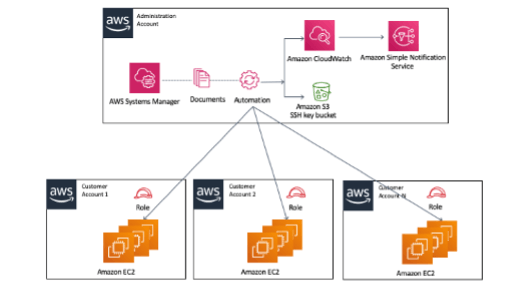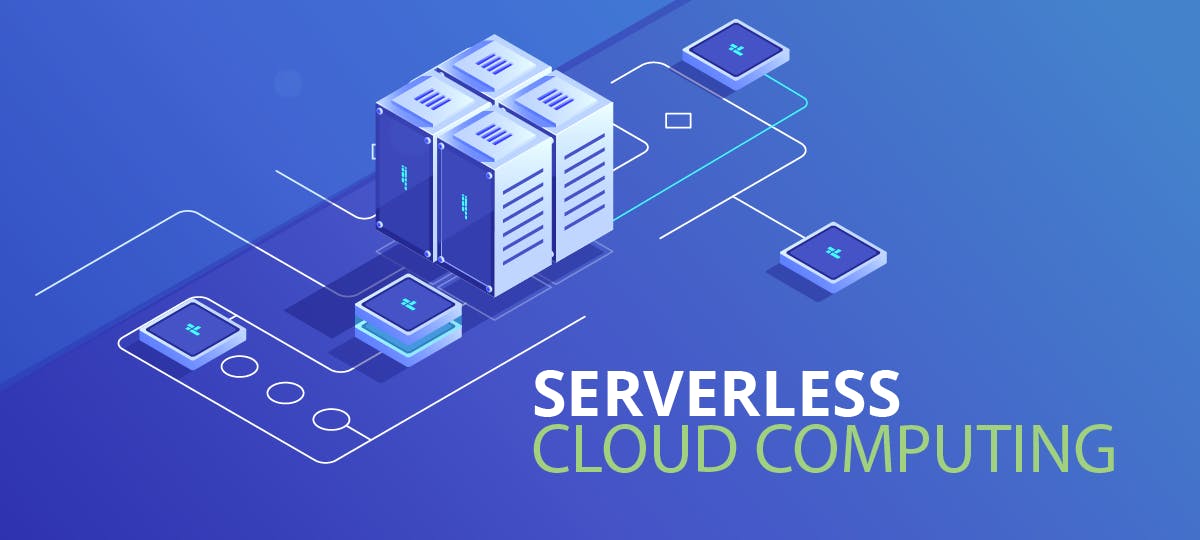Objective
Autoium, a company grappling with high costs from manual AWS cloud administration, sought to streamline its processes to reduce expenses and enhance efficiency. By implementing a comprehensive automation solution using AWS services, Autoium reduced operational costs, minimized human error, and improved overall system performance. This case study details the challenges Autoium faced, the solutions they implemented, and the resulting benefits.
Customer Business Problem
Autoium's IT team was overwhelmed with manual cloud management tasks, including:
- Provisioning: Setting up new resources as needed.
- Monitoring: Keeping track of resource usage and system health.
- Scaling: Adjusting resources to meet demand.
- Patching: Updating systems to ensure security and performance.
These labour-intensive tasks led to high direct costs and increased the risk of human error, causing inefficiencies and potential downtime. Additionally, staying current with best practices and implementing robust security measures demanded significant time and effort, further driving up operational expenses. Autoium needed an automated solution to streamline these processes, reduce costs, and improve efficiency.


The Solution
Autoium leveraged several AWS services to automate and optimize their cloud administration:
- AWS CloudFormation: Automated the provisioning and management of AWS resources. By defining infrastructure as code, Autoium could deploy and manage their environment consistently and predictably. CloudFormation templates allowed for the rapid deployment of resources, reducing setup time and errors.
- AWS Systems Manager: Centralized operational data from multiple AWS services, enabling streamlined management of resources. Systems Manager facilitated automated patching, configuration management, and compliance monitoring, reducing the manual workload and ensuring that systems were up-to-date and secure.
- AWS Auto Scaling: Enabled dynamic scaling of resources based on demand. Autoium could automatically adjust the capacity of their applications, ensuring optimal performance and cost-efficiency without manual intervention. This service was crucial during traffic spikes, as it scaled resources up or down seamlessly.
- AWS Trusted Advisor: Provided real-time best practice recommendations across five categories: cost optimization, performance, security, fault tolerance, and service limits. Trusted Advisor helped Autoium identify and remediate potential issues, optimize resource usage, and adhere to AWS best practices.
- AWS Lambda: Allowed Autoium to run code in response to events without managing servers. Lambda functions automated various operational tasks, such as monitoring, notifications, and backups. This serverless computing approach reduced the need for manual operations and improved system responsiveness.
Implementation Strategy
Autoium implemented these AWS services in a phased approach to ensure a smooth transition and minimal disruption:
- Assessment and Planning: Evaluated existing infrastructure, identified manual processes suitable for automation, and developed a comprehensive implementation plan.Pilot Migration: Initiated a pilot migration of select applications to test the migration process and validate the performance on AWS. Feedback from this phase was used to refine the migration strategy.
- Pilot Projects: Initiated small-scale pilot projects to test the automation tools and refine the processes. This phase helped identify potential challenges and allowed for adjustments before full-scale implementation.
- Full-Scale Deployment: Rolled out the automation tools across all relevant operations. Detailed documentation and training ensured that the IT team was equipped to manage and maintain the new automated processes.
- Monitoring and Optimization: Continuously monitored the performance of the automated systems, using AWS monitoring tools like CloudWatch and Trusted Advisor to identify areas for further optimization.
Results and benefits
The implementation of AWS automation tools yielded significant benefits for Autoium:
- Cost Reduction: Automation led to a 30% reduction in operational expenses within the first six months. By reducing the need for manual intervention, Autoium significantly lowered labour costs.
- Increased Efficiency: Automated processes allowed the IT team to focus on strategic initiatives rather than routine tasks, resulting in a 40% increase in productivity. Routine maintenance tasks were performed more quickly and consistently, improving overall system performance.
- Enhanced Reliability: Automation reduced the risk of human error, leading to fewer incidents and improved system reliability. Downtime was reduced by 25%, enhancing customer satisfaction and trust.
- Improved Security: AWS Systems Manager and Trusted Advisor ensured that security patches and best practices were consistently applied. Autoium's environment became more secure, with reduced risk of breaches and compliance issues.
- Scalability: AWS Auto Scaling and Lambda enabled Autoium to handle varying workloads efficiently. During peak periods, resources scaled automatically to meet demand, ensuring optimal performance without over-provisioning.
Conclusion
Autoium's strategic adoption of AWS automation tools transformed their cloud administration processes, resulting in substantial cost savings, improved efficiency, and enhanced reliability. By leveraging AWS CloudFormation, Systems Manager, Auto Scaling, Trusted Advisor, and Lambda, Autoium automated routine tasks, reduced human error, and focused on strategic growth initiatives. This case study demonstrates the value of AWS automation in optimizing cloud operations and achieving business goals, positioning Autoium for continued success in a competitive market.






